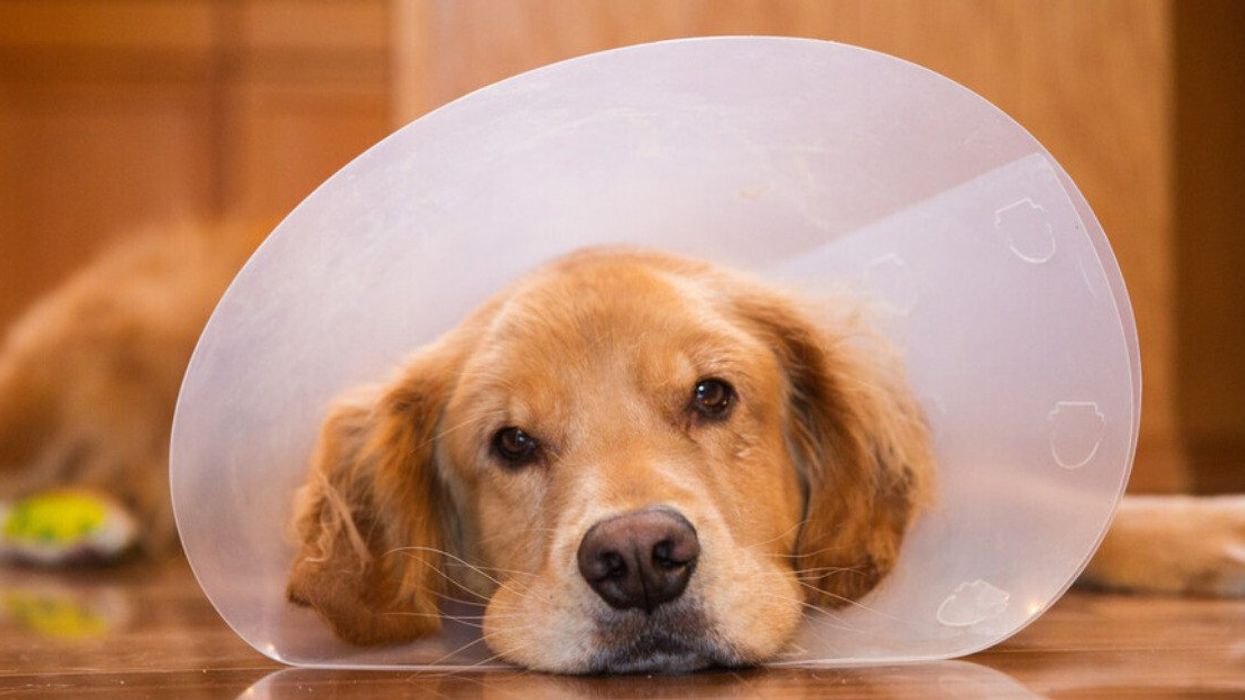A Quebec Law Banning Cosmetic Surgeries For Pets Is Coming Into Effect
No more ear cropping or cat declawing, among other procedures.

A dog wearing a cone collar.
In a move that has tails wagging and pet ears perking up across Quebec, a law banning elective surgery for pets is coming into effect this month.
As of February 10, practices like tail docking, ear cropping, canine devocalization, and the controversial method of feline declawing will no longer be allowed in the province. It will also be illegal for pet owners to travel outside of Quebec to seek those procedures.
The regulation, which was approved in 2022 and given an 18-month grace period, addresses long-standing debates over the ethics of cosmetic modifications in animals. It also sets minimum standards for the care, socialization, enrichment, and exercise of domestic animals, including cats, dogs, guinea pigs, pet pigs, rabbits, ferrets, and horses.
The legislative push gained momentum after the Ordre des médecins vétérinaires du Québec (OMVQ) prohibited its members from engaging in tail docking and ear trimming in 2017, laying the groundwork for the legal ban.
The law targets surgeries that were traditionally performed more for aesthetic preferences than medical needs. Critics argue that these practices cause unnecessary pain and suffering, with potential long-term health and behavioral consequences for the animals involved.
"On the surface, these surgeries seem routine. However, they are invasive, carry risks of complications, and constitute potential sources of physical and mental suffering in the animal," said Dr. Gaston Rioux, president of the OMVQ.
"In certain cases, they cause undesirable behavior and alter instinctive behavior," he said.
The Montreal SPCA also opposes surgical procedures done for cosmetic purposes or to impair or modify an animal’s natural behavior, emphasizing that "sterilization performed by a licensed veterinarian is not considered an elective surgical procedure."
Exceptions to the ban are tightly regulated, allowing surgeries to proceed only if there's a valid medical reason.
The regulation not only impacts veterinary practices but also marks an important cultural change, advocating for a more humane and considerate approach to pet ownership in the province.
"To reflect the fundamental values of the veterinary profession and those of society which echo them, the Order recently modified its logo, which featured a dog with cropped ears," said Dr. Rioux.
"From now on, the animal wears its ears naturally, a sign of an important and essential shift in animal welfare in Quebec."
